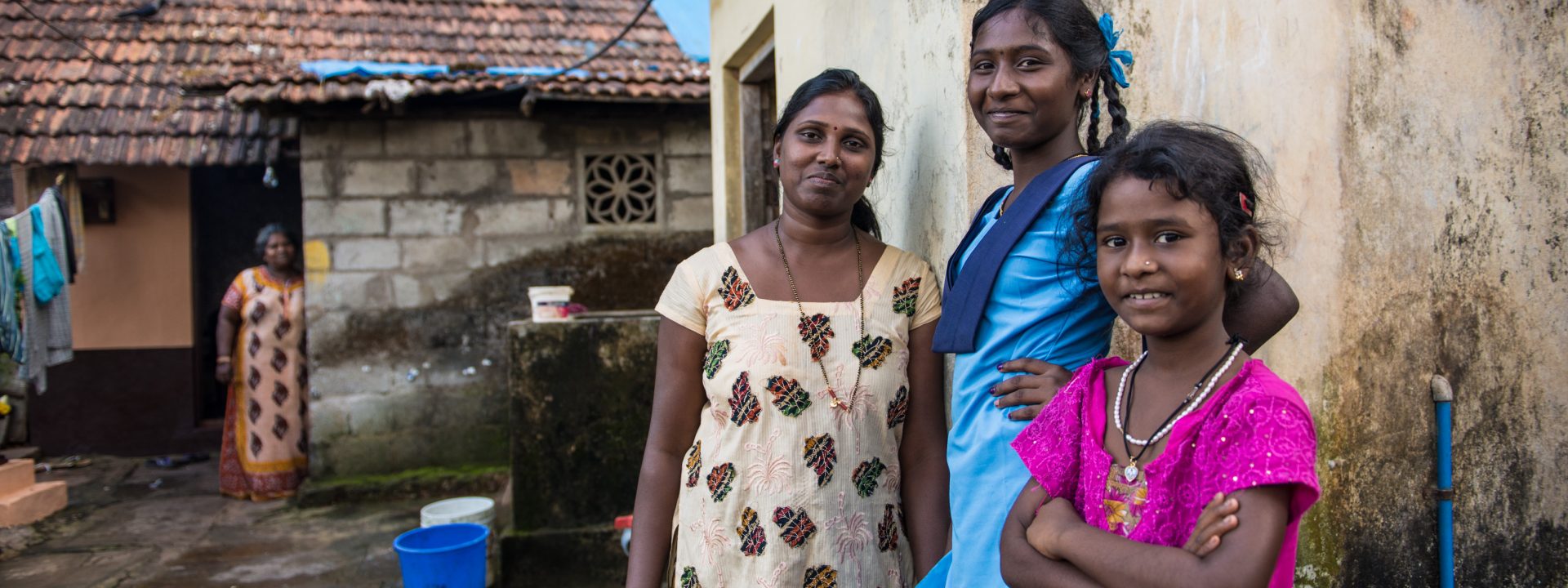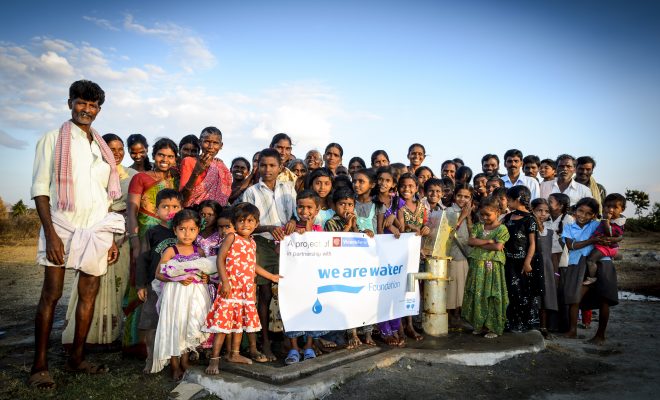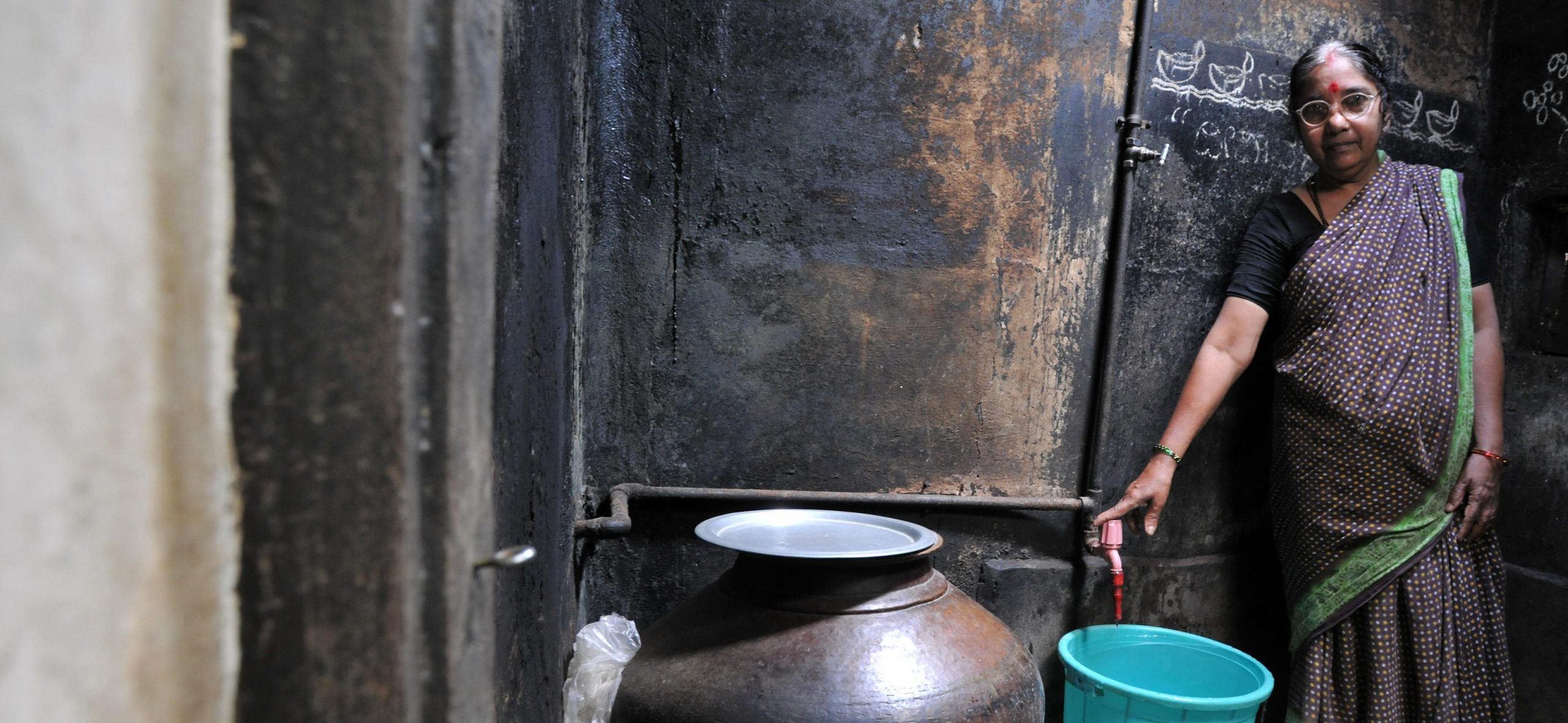
© Asian Development Bank
Out of the 600 million Indians who defecate in the open, women bear the brunt. The lack of empowerment of women in India, especially if they belong to the lowest castes, worsens the problems they suffer due to the lack of access to water, toilets and hygiene education.
Either in the urban suburbs or in rural areas, those Indian women who do not have a toilet generally need to postpone their physiological needs to the nighttime hours. At that time they can preserve their privacy, but they are at greatest risk of being attacked by vermin, of being sexually assaulted or robbed, and even if they go in groups, they are exposed to a high crime rate. There is a very interesting fact: in the State of Delhi, 70% of the sexual assaults take place when women leave their houses to defecate in the open. In the poorest areas of the district of Anantapur, where the We Are Water Foundation collaborates in sanitation projects with the Vicente Ferrer Foundation, it is common for women to walk for up to one kilometre in the dark, in the deepest hours of the night, to reach the waste grounds.
Apart from the accumulated exhaustion due to poor sleep, this practice also entails negative consequences for their health. Krishan Kumar Arggarwal, vice president of the Indian Medical Association, alerts to the risks faced by women when postponing their physiological needs: “All doctors agree that it is very important to go to the toilet at the right moment and to avoid retaining faeces or urine, as this practice causes many diseases.”
If faeces are not expelled when the body requires it, the small intestine tends to collapse, and therefore nutrients are not assimilated. This situation worsens the already deficient nutrition of the poorest in India, who suffer high rates of anaemia and immunosuppression. According to the report on public health issued by the Indian government in 2013, in the state of Andhra Pradesh where Anantapur is located, 33.5% of the women are below the ideal weight recommended by the WHO, and 63% of the single women aged between 15 and 49, and 56.4% of the pregnant women suffer anaemia. These are much higher figures than that of men of the same economic level, which reach 20%.
Another danger of resisting the urge to defecate is the accumulation of gases in the intestine caused by the slowing of the food transit. These gases may damage the intestinal flora making the digestive system more vulnerable to bacterial infections or to toxins in food, which due to the poor quality of the water they generally drink turn many endemic diseases, such as diarrhoeal ones, into illnesses that become chronic in their weakened bodies. Over 1.7 million cases of diarrhoeal diseases were registered in Andhra Pradesh in 2013, more than half of them in women.
Hygiene education, the antidote to cultural taboos
The lack of access to water forces women to carry a jug of water to clean themselves every time they go out to defecate, and therefore they do not wash their hands with the minimum hygienic conditions and when they cook, they transmit many infectious microorganisms to food. Many times the water they carry is contaminated with fluoride, causing fluorosis to those who drink it, another endemic disease in the area. According to Sirapa, director of the Health area of the Vicente Ferrer Foundation, “up to 60% of the illnesses suffered by the inhabitants of Anantapur could be avoided if they had access to safe water.”
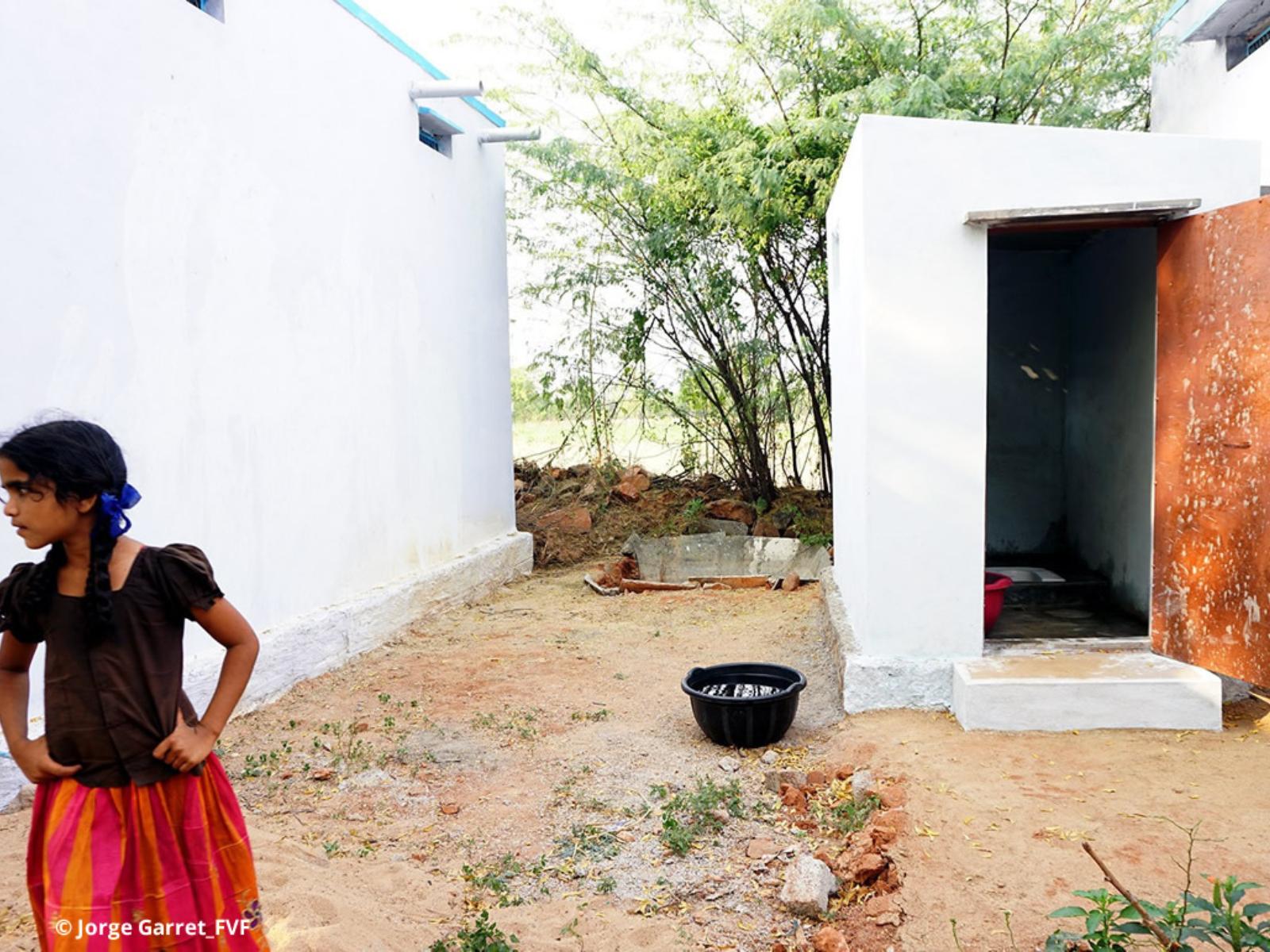
In this case cultural inertia is a factor that makes it difficult to take advantage of the toilet facilities. “We have spent 30 years promoting the use of toilets but we have not succeeded until very recently, because people did not understand their importance in the prevention of diseases and they did not want latrines in their homes because they seemed something dirty”, Sirapa explains. As in all projects for the construction of latrines and facilities to provide access to water and sanitation developed by the We Are Water Foundation together with the Vicente Ferrer Foundation, the education in their use is essential to guarantee their sustainability. But the education on personal hygiene and the adequate use of water to avoid the spreading of diseases is also vital.
The taboo of menstruation
A problem that arises when cultural taboos and the lack of facilities meet is the intimate hygiene of women especially during their menstruation. Nowadays, the exclusion many women experience when they have their period is deeply rooted in many cultures around the world where it continues to be a taboo that is largely influenced by cultural and religious practices. This is the reason why women do not discuss this issue and they are not informed on a physiological level.
In India, many women are not allowed to cook or touch certain animals when they are menstruating, as there is some belief that they can spread diseases. The situation can be traumatic for many girls when they have their period for the first time, as no one has explained what is happening to them. The problem worsens when only half of the schools in India have separate toilets for boys and girls, as the shame experienced adds to the lack of privacy to clean themselves. This is one of the reasons why 113 million teenagers leave school when they reach puberty; another one is that in large sectors of Indian society menstruation means the passage to adulthood, and therefore when they are 13 or 14 those girls who already have their periods can get married, dropping out of school. As usual this is common in the poorest areas and in the lowest castes, in which puberty coincides with the need to take care of the family, to fetch water and to be in charge of domestic chores.
Only 12% of women use sanitary pads due to their high price and their use is virtually non-existent in the lower castes. Among those who use them, only those under the age of 30 have modern products; older women always use a cotton cloth they clean, but they do not always do this properly or they wash it with contaminated water, and therefore this piece becomes another element to transmit diseases.
The same taboos and the lack of education prevent most women in rural areas from cleaning their vagina correctly, or they do it with leaves or sheets of paper, or use contaminated water. Diseases such as vaginal infections or sexually transmitted illnesses are very common in rural India.
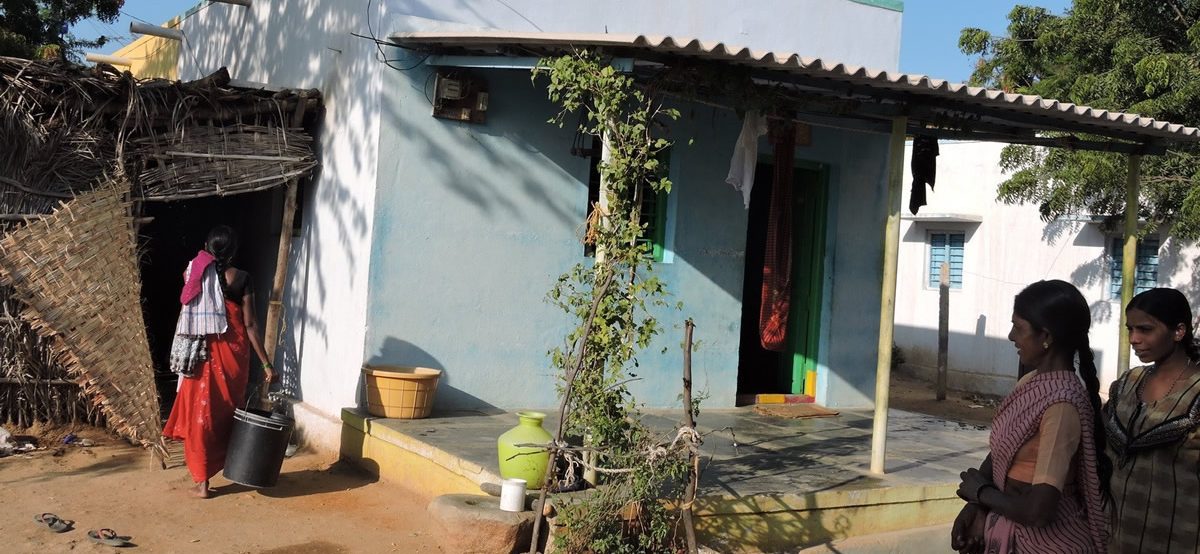
A challenge that needs to be faced
The government of India is willing to end open defecation by 2019. This is the goal of the programme Swachh Bharat Abhiyan, which implies an investment of 10 billion dollars to face the gigantic task of installing 120 million toilets. The example of India is encouraging in the world context of achieving the Sustainable Development Goal no. 6 and to make sanitation accessible to all the inhabitants of the planet by 2030. The achieving of this goal no. 6 will make it possible to attain goal no. 5, gender equality. With simple latrines that provide privacy, we will have taken a very important step forward.


